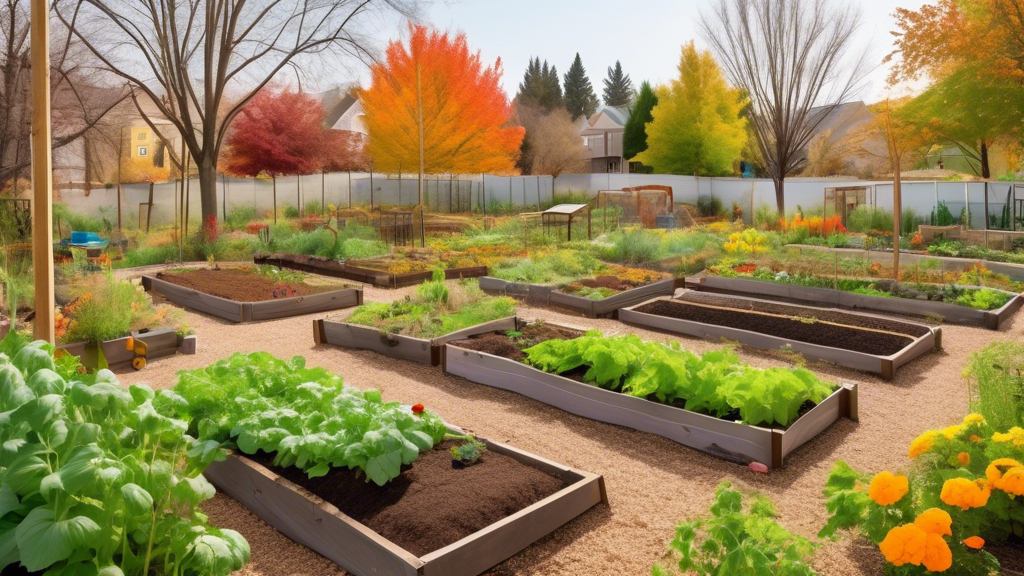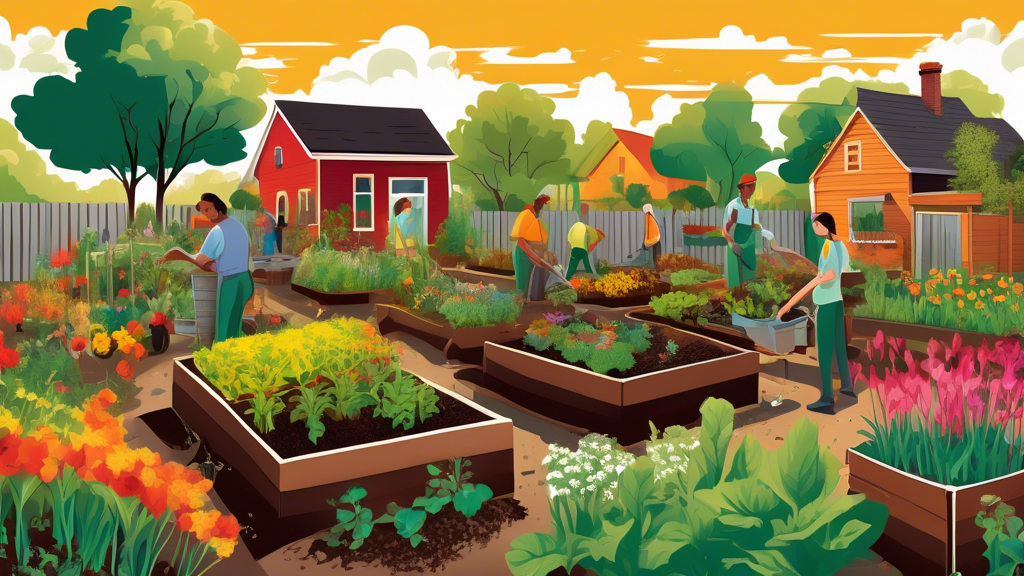Maintaining soil health throughout the year is crucial for thriving plants and a resilient ecosystem. This article delves into the best practices to preserve and enhance soil quality in all seasons. By understanding soil health and its significance, gardeners and farmers can achieve better plant growth and ecosystem sustainability. The vitality of soil relies significantly on microorganisms and organic matter, which play essential roles in its overall well-being.
We will explore strategies for effective soil management tailored for each season, including spring, summer, fall, and winter. Utilizing cover crops and proper crop rotation methods are vital components of these strategies. Sustainable approaches to fertilization and composting also contribute immensely to soil quality. Additionally, adopting no-till farming and minimizing soil disturbance are indispensable practices for maintaining soil health. These techniques collectively ensure a balanced and productive soil environment year-round.
Understanding Soil Health: Key Principles and Benefits
Definition and Importance of Soil Health
Soil health refers to the continued capacity of soil to function as a vital living ecosystem that sustains plants, animals, and humans. Healthy soil is essential for efficient nutrient cycling, water filtration, and plant growth. Its quality directly influences the agricultural productivity and environmental sustainability.
How Soil Health Impacts Plant Growth and Ecosystem Sustainability
Good soil condition is fundamental for optimal plant growth. Nutrient-rich soil allows plants to develop strong root systems, improving their resilience against diseases and environmental stressors. Moreover, well-maintained soil contributes to ecosystem sustainability by promoting biodiversity, reducing erosion, and aiding in carbon sequestration. Healthy soil supports a diverse range of organisms that are crucial for soil structure and fertility.
The Role of Microorganisms and Organic Matter in Soil Vitality
Microorganisms, including bacteria, fungi, and protozoa, play a crucial role in decomposing organic matter, recycling nutrients, and forming humus, which enhances soil structure and fertility. Organic matter, such as decomposed plants and animal residues, serves as a reservoir of nutrients and an energy source for soil biota. Together, they create a balanced and nutrient-rich environment essential for robust plant development.

Year-Round Soil Maintenance: Strategies for Success
Seasonal Soil Care: Adapted Practices for Spring, Summer, Fall, and Winter
Seasonal soil care is essential for maintaining healthy soil throughout the year. In spring, focus on preparing the ground for planting by incorporating organic matter to boost nutrient availability. As the weather warms up in summer, take measures to shield the soil from extreme heat and dehydration, such as mulching and ensuring consistent watering. Come fall, enhance soil structure by planting cover crops that will add organic matter and protect against erosion. During winter, protect the soil with a layer of mulch or cover crops to prevent nutrient loss and compaction from harsh weather conditions.
Effective Use of Cover Crops and Crop Rotation
Utilizing cover crops and crop rotation effectively helps to sustain soil health. Cover crops, such as clover or rye, add nutrients back into the soil and prevent erosion. They also aid in pest control by interrupting pest life cycles. Crop rotation involves growing different types of crops sequentially on the same plot. This practice mitigates the depletion of specific nutrients by alternating the plants that require them, thus maintaining a balanced nutrient profile in the soil.
Sustainable Fertilization and Composting Techniques
Employing sustainable fertilization and composting methods can significantly improve soil health. Opt for organic fertilizers that release nutrients slowly and improve soil structure over time. Composting kitchen scraps and yard waste creates a nutrient-rich amendment that enhances soil fertility. Regularly adding compost helps in boosting microbial activity and increases the soil’s ability to retain moisture. Avoid over-fertilization, which can lead to nutrient runoff and adversely affect the environment.
Implementing No-Till Farming and Reducing Soil Disturbance
No-till farming and minimizing soil disturbance are critical for maintaining soil integrity and health. No-till farming involves planting seeds directly into the residue of previous crops without plowing the land, which reduces soil erosion and moisture loss. This method helps in preserving soil structure and microorganisms that are vital for plant growth. Additionally, reducing the frequency of soil disturbance allows for better water infiltration and decreased erosion, leading to healthier, more resilient soil over time.
To conclude, maintaining soil health throughout the year is an essential practice for sustaining productive agriculture and environmental well-being. This practice goes beyond mere cultivation, emphasizing a holistic approach that fosters sustainable ecosystems. By understanding the key principles that underpin soil health, including the significance of microorganisms and organic matter, one can better appreciate the benefits this brings to plant growth and ecosystem sustainability.
Effective maintenance strategies vary by season, requiring specific practices to suit spring, summer, fall, and winter conditions. Utilizing cover crops, rotating crops, and adopting sustainable fertilization and composting methods are foundational elements in this journey. Moreover, techniques like no-till farming and minimizing soil disturbance play crucial roles in preserving the integrity and vitality of the soil.
By integrating these best practices into regular agricultural routines, cultivators can significantly enhance soil health, ensuring long-term productivity and ecological balance. Whether you are a seasoned farmer or new to agriculture, understanding and implementing these strategies is key to maintaining vibrant and resilient soil year-round.


